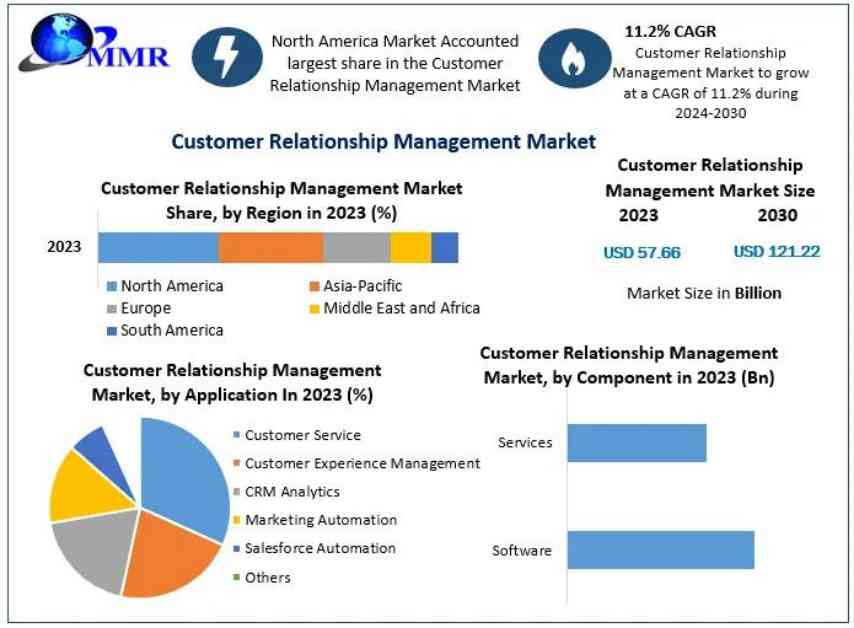The Customer Relationship Management (CRM) market is experiencing significant growth, with the total revenue expected to reach nearly USD 121.22 billion by 2030, reflecting a 11.2% Compound Annual Growth Rate (CAGR) from 2024 to 2030. This growth is fueled by the essential role CRM systems play in modern business strategies, enabling organizations to enhance interactions with existing customers and effectively engage new ones.
CRM systems serve as a centralized hub for managing and tracking critical customer data, streamlining communication, improving customer satisfaction, and providing structured guidelines for businesses to optimize their relationships with customers. As companies increasingly recognize the importance of data-driven decision-making, CRM systems are being integrated into various departments, from sales and marketing to customer support, to enhance overall customer experience and drive business growth.
Key dynamics propelling the CRM market include the growing emphasis on customer engagement, the rise of small and medium-sized enterprises (SMEs), and the increasing utilization of social platforms for real-time interaction. Businesses are leveraging CRM solutions not only to boost revenue and marketing efficiency but also to foster deeper customer connections.
Current trends in the CRM market reflect the rapid pace of digital transformation across industries. Organizations are replacing disparate systems with comprehensive CRM solutions that integrate business intelligence and embedded analytics, driving innovation among CRM providers to meet evolving business needs. Additionally, the shift towards cloud-based CRM deployments is gaining momentum, offering flexibility, scalability, and cost-efficiency critical for businesses in a digital-first world.
The CRM market presents numerous growth opportunities, particularly in sectors undergoing digital transformation. As the complexity of IT environments increases, there is a strong demand for CRM tools that can streamline and automate processes. The rise of microservices architecture and containerization offers significant potential for CRM solutions to enhance efficiency and scalability. Moreover, the adoption of CRM by SMEs is on the rise, providing a growing market segment for vendors to target.
Regionally, North America holds a dominant position in the CRM market due to widespread adoption of technological advancements such as machine learning and industrial automation. Meanwhile, the Asia Pacific region is expected to experience the fastest growth in the CRM market, driven by strong economic performance, investments in customer retention, and rapid digitalization of businesses in emerging economies.
In conclusion, the Customer Relationship Management market is poised for substantial expansion, fueled by key dynamics, current trends, growth opportunities, and regional insights. With the increasing importance of CRM in modern business strategies, organizations can leverage CRM solutions to enhance customer relationships, drive business growth, and stay competitive in a digital-first world.






















